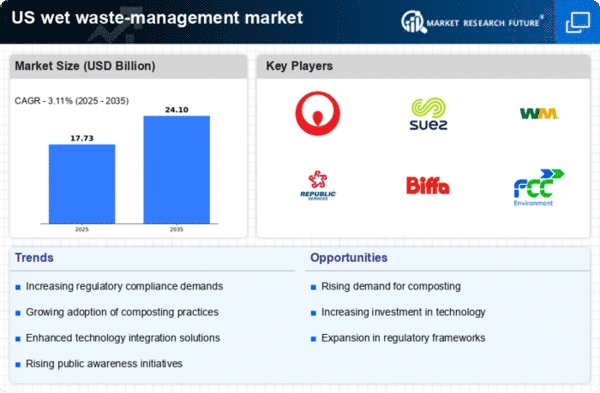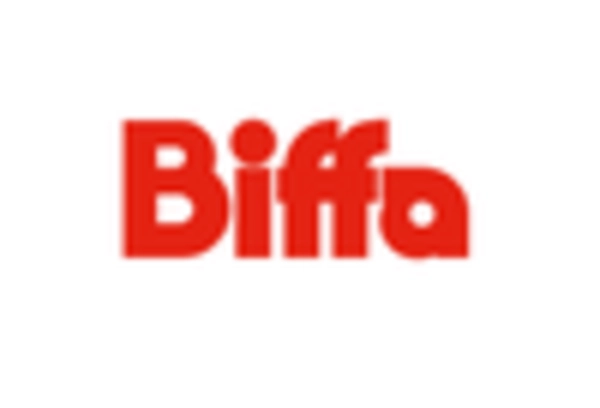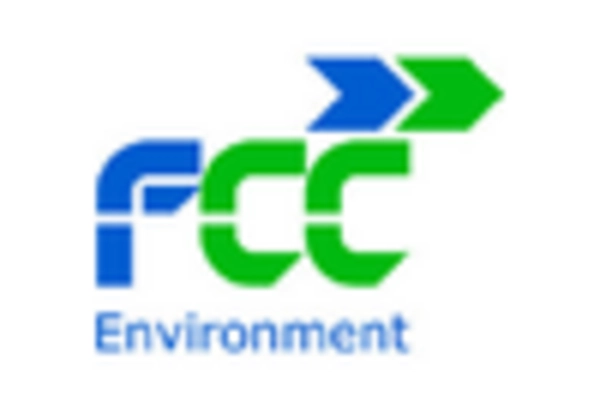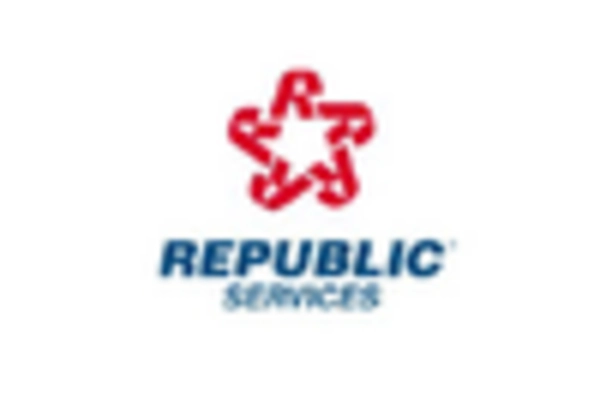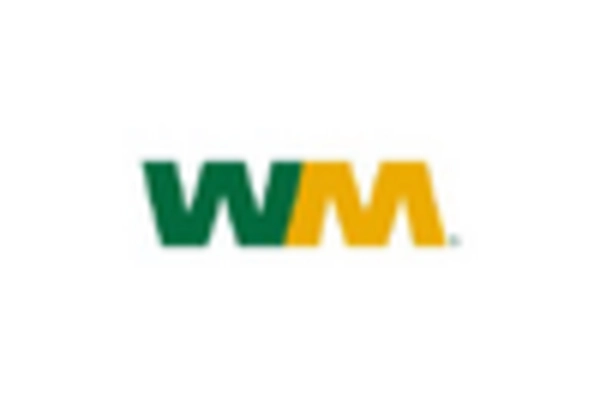Government Incentives
Government incentives are a significant driver of growth in the wet waste-management market. Various federal and state programs are designed to encourage the adoption of sustainable waste management practices. For instance, grants and subsidies are often provided to municipalities that implement composting and recycling programs. In 2025, it is anticipated that these incentives will lead to an increase in funding for wet waste management initiatives, potentially exceeding $500 million nationwide. Such financial support not only aids in the development of necessary infrastructure but also promotes public-private partnerships aimed at enhancing waste management efficiency. Consequently, the presence of government incentives is likely to stimulate market growth and encourage innovation..
Increasing Urbanization
The trend of increasing urbanization in the United States is a pivotal driver for the wet waste-management market. As more individuals migrate to urban areas, the volume of wet waste generated rises significantly. Urban centers, which are often densely populated, face challenges in managing organic waste effectively. In 2025, urban areas are projected to account for approximately 80% of the total waste generated in the country. This surge in waste necessitates innovative management solutions, thereby propelling the growth of the wet waste-management market. Furthermore, municipalities are increasingly investing in infrastructure to handle organic waste, which may lead to a projected market growth rate of around 6% annually. The need for efficient waste management systems in urban settings is thus a critical factor influencing the wet waste-management market.
Technological Innovations
Technological innovations play a crucial role in shaping the wet waste-management market. The introduction of advanced waste processing technologies, such as smart bins and automated sorting systems, enhances the efficiency of waste collection and processing. In 2025, it is estimated that the adoption of these technologies could reduce operational costs by up to 20%, making waste management more economically viable for municipalities. Additionally, the integration of data analytics and IoT in waste management systems allows for real-time monitoring and optimization of waste collection routes. This technological evolution not only improves service delivery but also contributes to the overall effectiveness of the wet waste-management market. As technology continues to advance, it is likely that the market will experience a surge in demand for innovative solutions that streamline waste management processes.
Sustainability Initiatives
Sustainability initiatives are becoming increasingly prominent in the United States, significantly impacting the wet waste-management market. With a growing emphasis on reducing landfill waste and promoting recycling, many organizations and municipalities are adopting sustainable practices. The U.S. Environmental Protection Agency (EPA) has set ambitious goals to divert 50% of waste from landfills by 2030, which includes a focus on organic waste. This shift towards sustainability is likely to drive investments in composting and anaerobic digestion technologies, which are essential components of the wet waste-management market. As businesses and local governments align their operations with sustainability goals, the demand for effective wet waste management solutions is expected to rise, potentially leading to a market expansion of approximately 7% over the next few years.
Rising Consumer Demand for Organic Products
The rising consumer demand for organic products is influencing the wet waste-management market in the United States. As more consumers opt for organic food, the volume of organic waste generated increases correspondingly. This trend necessitates effective management solutions to handle the organic waste produced by households and businesses. In 2025, it is estimated that organic waste will constitute approximately 30% of the total municipal solid waste generated. This growing demand for organic products is prompting retailers and food producers to seek sustainable waste management practices, including composting and recycling initiatives. As a result, the wet waste-management market is likely to expand to meet the needs of this evolving consumer landscape, potentially achieving a growth rate of around 5% annually.


